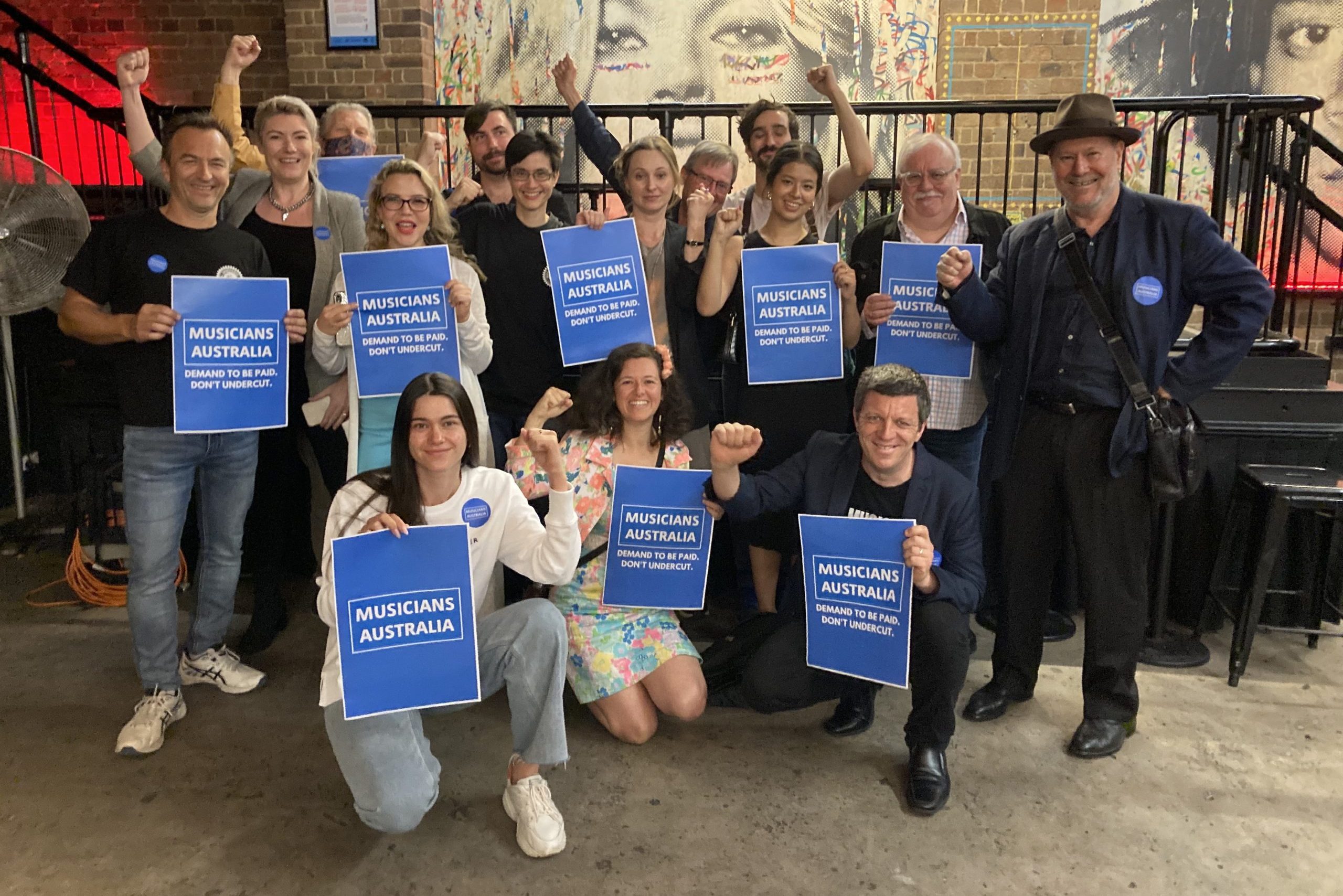2022-23 Musicians Section Report
By Paul Davies, Director, Musicians
Musicians Australia members gathered in Sydney with MEAA Chief Executive Erin Madeley and Musicians Director Paul Davies ahead of a meeting on December 14, 2022 where then-NSW Opposition Leader Chris Minns announced his support for the $250 minimum fee.
MEAA musicians continue to build their union, signing up hundreds of new members, running activist groups across the country and making sure that our voice is heard whenever decisions affecting the lives of musicians are contemplated or made.
Our plan sits on two pillars: through Musicians Australia we are putting a floor on fees in order to wipe out exploitation and create a more secure and stable industry; and our orchestra and musical theatre members are building on the stability of our Award and bargaining standards to ensure that we have conditions across the industry to support good jobs and recognise the value of our work as ongoing employees or freelance musicians.
Our ‘250’ minimum fee campaign has achieved industry recognition and support from governments and peak music organisations. While every state government except Tasmania endorses and requires the fee of $250 for each musician be paid for all publicly funded events, the fee is now also being adopted in purely commercial operations.
There is no doubt that the $250 has been established as the benchmark industry minimum for non-employee musicians, meaning that in 2023-24 we will be moving to the next phase of the campaign: establishing a broad industry agreement to implement the $250 comprehensively. We have agreement to begin work on this from industry associations in Victoria and Queensland, along with the Australian Live Music Business Council and APRA/AMCOS.
Economic security is essential for a safe and inclusive industry and members have developed a platform of claims for ongoing campaigning that also forms a submission to the newly established Creative Workplaces. Sitting within Creative Australia, Creative Workplaces promises progress on a broad front, addressing all workplace and industry practices that undermine the safety, respect and recognition of artists. MEAA Musicians Australia member Ruth Hazleton has been appointed to the Creative Workplaces board.
MEAA is also partnering with a coalition of groups to fix the longstanding problem with musicians not receiving residual payments for recording work. Dr Rod Davies, a MEAA MA committee member and music academic is leading this work including briefing politicians and decision makers.
While Symphony Orchestra Musicians Association (SOMA) members continue to bargain across the state-based orchestras and Opera Australia, we are also addressing issues for freelance orchestra musicians with a focus on developing practices to provide more direct feedback and advice to musicians about hiring decisions. A national freelance orchestra survey has attracted a high number of respondents and this will form the basis for ongoing work with these members.
Another significant development is the operation of new workplace laws which will have the effect of stopping the practice of orchestras filling ongoing roles through a series of fixed term contracts. While there are still some details to be worked out regarding the starting date and application of the laws to the live performance industry, we expect that these changes will have direct positive effect for Orchestra Victoria in particular where management have insisted on filling all new positions with three-year fixed term contracts. These contracts will now be phased out with musicians transferred to ongoing employment.
SOMA has also written to the CEOs of the major orchestras offering to facilitate a process of developing industry level policy. While bargaining is a useful method for maintaining and improving conditions, it is a limited tool. Real progress on security of work, and developing future musicians, audiences and community engagement will be best achieved through sector level co-operation and collaboration, with a view to forming progressive policy and influence with decision makers, including governments.
It’s pleasing that the invitation has been taken up by some CEOs and that we have begun to find common ground and to scope out the project. We’re confident that other companies will join in with this work over the coming months.
